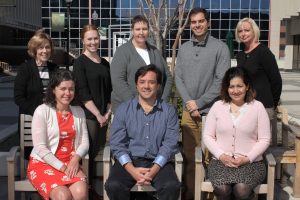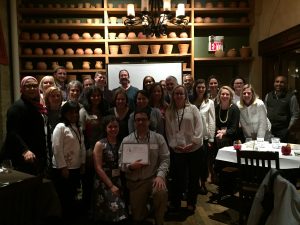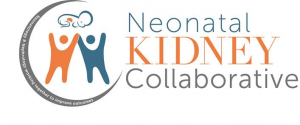By Jennifer Charlton, MD, MSc
Q: Tell me about your program.
A: The Neonatal Kidney Collaborative (NKC) is an alliance of neonatologists and pediatric nephrologists from 24 institutions on 4 continents. The NKC assembled shortly after an NIH-NIDDK Sponsored Neonatal Kidney Injury Workshop in 2013. At this meeting, neonatologists and pediatric nephrologists agreed that the next step to better understand neonatal acute kidney injury was to expand from single to multicenter studies and recognized that a multidisciplinary collaboration was critical for significant progress.
The mission of the Neonatal Kidney Collaborative is to improve the understanding and outcomes associated with neonatal kidney health. The NKC developed an infrastructure to capture, analyze, interpret, and report meaningful data. Besides the multiple contributions to science by individuals of our group, members of the Neonatal Kidney Collaborative have come together to publish multiple state-of-the-art reviews on neonatal kidney health topics. Under the direction of NKC leadership, we performed a survey study to evaluate current perceptions about nAKI and CKD in NICU graduates. Published in the American Journal of Perinatology in 2017, our paper highlighted distinct differences between the neonatologist and pediatric nephrologist viewpoints regarding the short and long-term impact of neonatal acute kidney injury, clearly emphasizing the need for more research in this area to develop evidence-based guidelines.
The first study performed by the Neonatal Kidney Collaborative was AWAKEN (Assessment of Worldwide Acute Kidney Epidemiology in Neonates). In this international, retrospective cohort study, data were gathered from over 2000 critically ill newborns cared for in 24 NICU’s across 4 countries. We found wide practice variation in the collection of urine output (UOP) and serum creatinine (SCr) data. Not surprisingly, in part depending on how frequently these parameters were monitored, the rates of neonatal AKI ranged from 3% to 56% among the participating NICUs. As of June 2018, we have published 4 original manuscripts in high-impact journals (JAMA Pediatrics, Lancet: Child and Adolescent Health, Pediatric Research and Frontiers in Pediatrics). In addition, 13 other manuscripts are in preparation, many of which have been accepted as oral and poster presentations at international meetings.
Q: What have you learned that you would want to share with others in the department?
A: The uniqueness of the Neonatal Kidney Collaborative is the integration of neonatologists and nephrologists from every participating site. Working together has been far more productive than working independently, in silos. For trainees, I think it is important to know that if you are interested in a topic, there are likely many others also interested. If you have a passionate group, so much can be accomplished with very little money. To date, all NKC projects have been performed without an overall external sponsor (….although we are hoping for one soon). Resources for data abstraction and entry were independently provided by divisional, departmental, university, or philanthropic sources. Here at the University of Virginia, 100 Women who Care supported our participation in the Neonatal Kidney Collaborative.
Another lesson is to leverage the proximity of the University of Virginia to the National Institutes of Health. There are many exciting workshops sponsored by the NIH across diverse institutes. These workshops have directly influenced my career on multiple occasions and have allowed me to develop meaningful research projects that turned into funded R01 applications.
Q: Was there one story that really stood out for you along this process?
A: It used to be that when I would see a premature infant who had acute kidney injury in clinic with their family, I would say that we have no idea if or when your child might develop chronic kidney disease. Renal health has so often been overlooked as we care for critically ill patients. For the first time, we are highlighting the potential renal long term issues in these neonates who survive. Now I am able to say to parents of severely premature infants, it is through advancements in modern medicine that your child is alive and with more research we hopefully will be able to also protect and promote their kidney growth to prevent or ameliorate both acute kidney injury in the NICU and chronic kidney disease during child- and adulthood.
Q: What do you feel is the most exciting part of your program?
A: Working with people who have similar passions, but different viewpoints has been enlightening and exciting. It has been so much fun to see the collaborative and supportive nature of this group.
Filed Under: Features
Tags: jrc6n




